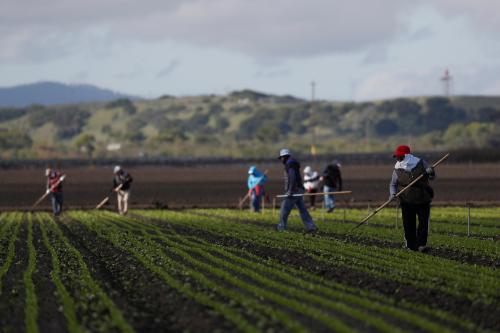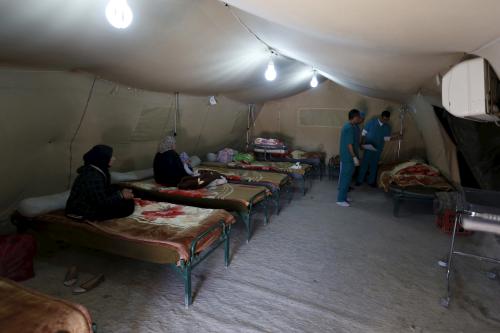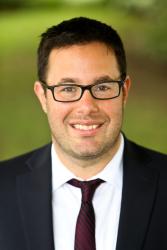As the global struggle against COVID-19 continues, the world as a whole continues to express gratitude to health workers and first responders for their tireless work. And that is the right thing to do.
One little but important detail about these workers should not go unnoticed: If you are going to be treated for COVID-19, there is a good chance your treating physician or nurse will be an immigrant. This is an important fact to bring up, especially now, after years of toxic rhetoric against immigrants coming from many politicians around the world, with President Trump being perhaps the boldest among them.
The numbers, in fact, speak for themselves (Figure 1). In the U.S., for example, the American Community Survey (data for 2018) shows that about 1 in every 4 physicians and 1 in every 6 nurses are foreign born (note that overall 1 out of about 7 people in the U.S. is an immigrant). According to OECD data, the situation is also very similar for the U.K.: Around 1 in 3 doctors and 1 in 6 nurses is foreign born, surpassing the share of foreign born in the population. France also has a significant share of foreign-born doctors (about 11 percent) whereas Italy has almost none.
Note: In the U.S., physicians are computed as belonging to the categories physicians, surgeons, and physician assistants, whereas nurses are computed as belonging to the categories registered nurses and nurse practitioners.
But there is more. For these physicians and nurses to perform their work saving lives, they need “fundamental” workers (a term I borrowed from the Center for Global Development’s Michael Clemens) supporting them inside and outside health care facilities: receptionists, assistants, cooks, cleaners, drivers, deliverers, etc. The number of immigrants in all countries that belong to this category of fundamental workers is substantial, and many of them struggle to get visas and permits to stay. While doctors are saving lives, these fundamental workers are on the frontlines of the limited economic activity happening today.
As this global effort to combat COVID-19 also involves the efforts of the private sector, mostly in the health sector, it is a good moment to remind ourselves of the important share of small and large firms founded by either immigrants or children of immigrants. In fact, according to data collected by the Center for American Entrepreneurship, about 30 percent of all Fortune 500 firms (based on 2017 revenues) active in the health industry were founded by either an immigrant or children of an immigrant. These firms include not only insurance companies but also pharmaceutical companies, laboratories, and equipment wholesalers. Countless start-ups in the health sector are also founded by immigrants. In fact, we know that immigrants represent an unusually large share of all entrepreneurs.
Last but not least, as scientists also work around the clock to find a vaccine for this new virus, let us not forget that a big chunk of these scientists and inventors are immigrants. According to a report by the National Science Foundation, over 40 percent of all tertiary degree-holders working in science and engineering are foreign born (based on 2015 data). This pattern is likely similar in many other developed nations. Thus, if a vaccine is discovered anytime soon, do not be surprised if a member of the team behind it is an immigrant.
Hopefully, after all this is over, we’ll remember that immigrants played a big role in helping humanity overcome this crisis. More importantly, I hope that politicians will act accordingly, too. First, by stopping the toxic and unfounded rhetoric against immigration altogether. Then, by easing the significant regulations and hurdles that make it so difficult for hardworking immigrants—professionals, entrepreneurs, and fundamental workers alike—to live where they know they can put their skills to use and thus contribute to society as a whole.
The Brookings Institution is committed to quality, independence, and impact.
We are supported by a diverse array of funders. In line with our values and policies, each Brookings publication represents the sole views of its author(s).







Commentary
Don’t forget to thank immigrants, too
April 1, 2020